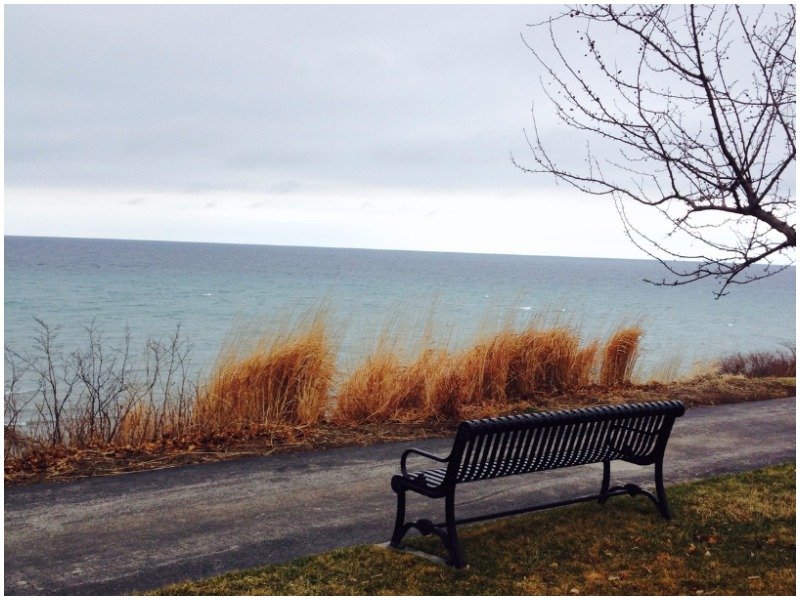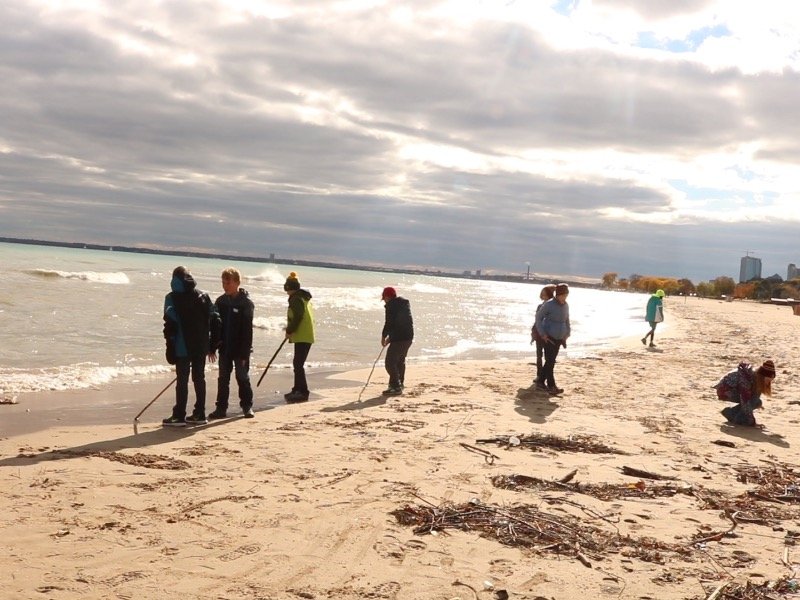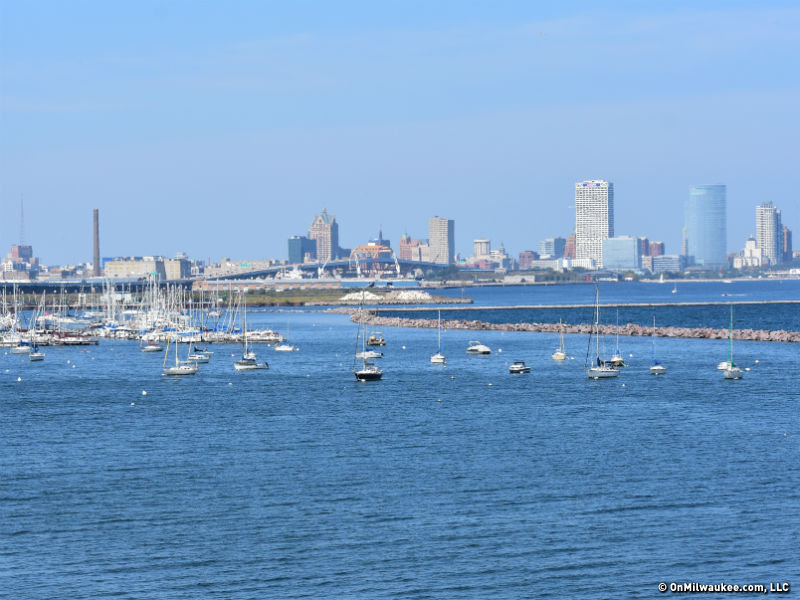Every Milwaukeean has a Lake Michigan story and for the next seven days OnMilwaukee will share as many as possible during "MKE Lake Week," sponsored by the Harbor District. Love our lake? You're in the right place.
It only makes sense that a city next to one of the biggest freshwater lakes would maybe have what Milwaukee historian John Gurda called "a wet subconscious," a thirst that for many can only be quenched by one beverage: beer.
But what came first: the thirst for beer or being in a spot susceptible for stewing up some suds? After all, one doesn’t have to be a particularly dedicated hop head to know water, eh, kind of a key component in brewing up beer – and sitting next to a giant body of freshwater would only seem to make that part of the process easier. According to Gurda, the thirst came first thanks to the German immigrants flooding in – and the lake was just a convenient spot to settle at the time.
"They chose Milwaukee because, in the years when Milwaukee began, everything traveled by water. So people got here by water through the Great Lakes – and wherever you had a river, you had a port, so that’s why there is a Milwaukee," Gurda explained. "The reason the Germans settled here was not because it looked like Germany, but basically because this is the area of the country that was open when they were coming in large numbers in the mid-1800s. It was very basically a matter of timing."
And with them, they brought a passion for beer to the shores of Lake Michigan – not that the lake was of much particular help for their delicious hobby. In those early days, brewers largely used ground water and well water, and while the nearby rivers and smaller inland lakes were essential for cutting out ice for keeping the beer cool before the invention of mechanical refrigeration – something Milwaukee had over other brewery cities like St. Louis and Cincinnati – Lake Michigan was normally too rough for ice. The lake wasn’t even all that useful as a shipping lane for brews, as rail typically took over the travel.
"In terms of direct association with beer, (a connection with Lake Michigan) is pretty tenuous," Gurda said.
As the years went by, however, the relationship between beer and the big body of water to our east only grew. Gurda – who is actually wrapping up work on a new book, "Milwaukee: A City Built on Water," for Wisconsin Historical Society Press, on that very topic – noted that Lake Michigan’s role transformed dramatically over the decades, from a lifeline to the East Coast to commercial fishing to the city’s "faucet and toilet" to, now, a recreational hub.
Its role with beer also drastically changed as well, as it turns out the convenient landing spot of Lake Michigan became a blessing for modern Milwaukee breweries. Some of the advantages are obviously; Good City Brewing co-founder and brewmaster Andy Jones, for instance, noted that merely having a massive nearby supply of water is an advantage not every city can brag about.
"I’m friends with brewers that are brewing in Colorado or California or other places where they’ve had shortages in recent years, and they have to really worry about it and they get charged more for it," Jones said. "Just the fact that it’s pretty plentiful here in the Great Lakes, we’re kind of blessed with that."
Having all that water also helps in a critical – if not exactly scintillating – part of the brewing process: the cleaning.
"There’s huge amounts of cleaning everyday – you’re cleaning out the tanks, you’re sterilizing things – so it takes a lot of water to do that, the constant scrubbing and rinsing and cleaning," said Chris Ranson, environmental program director and tourism manager at Lakefront Brewery. "A lot of industries don’t have to do that; we have to do that."
The lake provides other small but significant advantages the city’s ancestors could never have anticipated – thanks to science.
"The Lake Michigan water is really good for brewing beer because it has the right amount of minerals, and the water quality is really good," Ranson said. "We don’t have to add or take anything out of the water, really, for most types of beer. Very rarely, we have to add a little calcium, but for almost all the other beers, it’s ideal in its makeup."
"A pilsner is traditionally brewed with an extremely soft water, very low in mineral content, which is a little bit more similar to Lake Michigan water," Jones added. "If we wanted to brew an IPA, which is traditionally a British style that’s brewed with very hard water, high in calcium sulfate content, we can build the water up from there. It makes our job a little bit easier to have a blank slate rather than to have to start with a high mineral content."
And in response to this naturally balanced resource, many Milwaukee breweries do their best to give back to the lake that gives them so much. Lakefront Brewery works with the advocacy organization Riverkeeper for the "Adopt-a-river" program, helping take care of its nearby river from Humboldt to Pleasant and picking up trash so it doesn’t pour into lake.
Good City Brewing chooses not only to can its beers because it’s a recyclable and non-breakable container, but they also use eco-friendly PakTech plastic can holders which are made from old milk jugs and 100 percent recyclable. And just last Friday, Miller Brewing Company employees worked with Sweet Water to clean South Shore Beach.
So Lake Michigan isn’t just a picturesque view for your next pint; it probably helped make it.
As much as it is a gigantic cliché to say that one has always had a passion for film, Matt Mueller has always had a passion for film. Whether it was bringing in the latest movie reviews for his first grade show-and-tell or writing film reviews for the St. Norbert College Times as a high school student, Matt is way too obsessed with movies for his own good.
When he's not writing about the latest blockbuster or talking much too glowingly about "Piranha 3D," Matt can probably be found watching literally any sport (minus cricket) or working at - get this - a local movie theater. Or watching a movie. Yeah, he's probably watching a movie.







